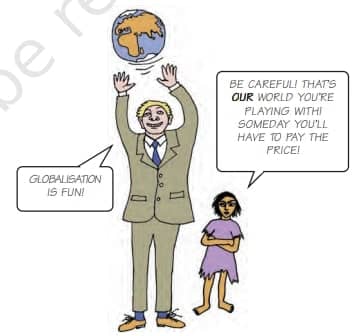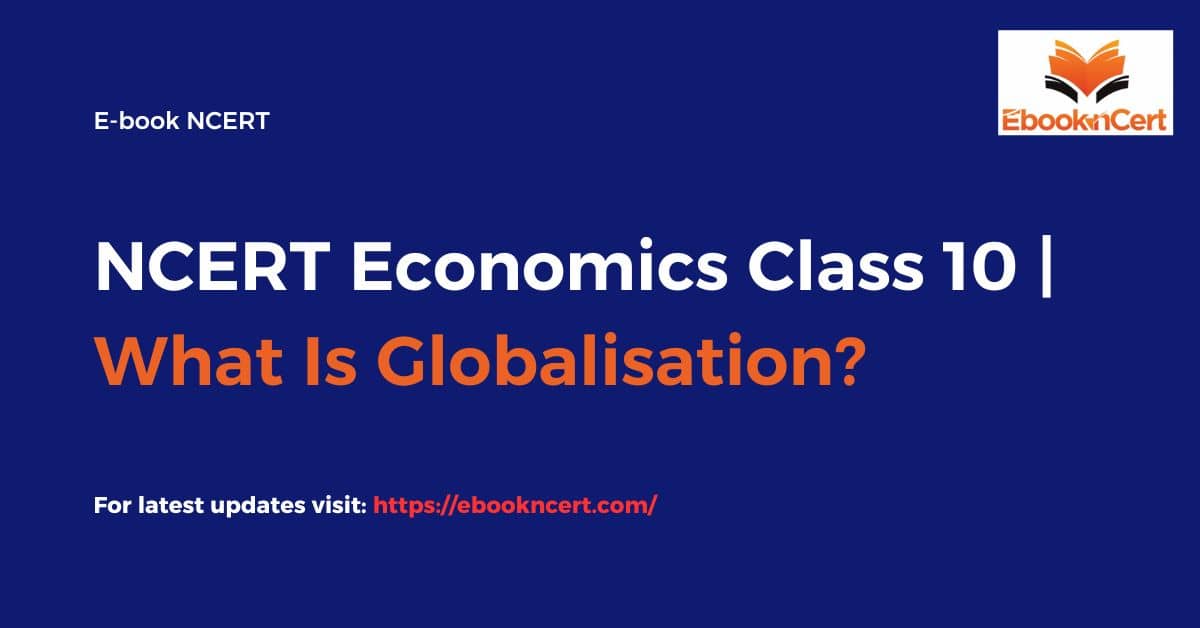Topic & sub-topics covered: What Is Globalisation?: Globalisation and The Indian Economy (All single detail notes are exam-oriented).
We have discussed in-depth and exam-oriented pointers that can be asked in the board exam of class 10th about “What Is Globalisation?” which is taken from the NCERT Economics notes for class 10th chapter 4 “Globalisation and The Indian Economy“.
Download the NCERT Economics for Class 10th Chapter 4 Globalisation and The Indian Economy PDF
“Download the NCERT Economics for Class 10th Chapter 4 Globalisation and The Indian Economy PDF” is essential for students. It offers insights into globalization’s impact on India’s economy, aiding comprehension of economic integration’s nuances. Students gain access to in-depth analyses, case studies, and theories, enhancing their understanding.
NCERT Class 10 Economics Chapter 4 Globalisation and the Indian Economy Class 10 Notes PDF
The PDF facilitates convenient learning, covering globalization’s historical context, theoretical frameworks, and practical implications for India. It serves as a valuable reference for educators, policymakers, researchers, and business leaders, providing a comprehensive understanding of globalization’s effects on India’s economic development. Accessing this resource empowers stakeholders to navigate globalization’s complexities effectively, fostering informed decision-making and strategic planning.
What Is Globalisation?

1. Rise of MNCs:
- In the past few decades, there has been a significant increase in the number of Multinational Corporations (MNCs) seeking cost-effective locations for production worldwide.
2. Foreign Investment and Trade:
- Foreign investment by MNCs in various countries has been increasing, accompanied by a rapid rise in foreign trade between nations.
3. MNCs’ Role in Foreign Trade:
- MNCs play a substantial role in controlling a large portion of foreign trade, utilizing their global presence for both production and distribution of goods and services.
4. Integration of Production and Markets:
- Greater foreign investment and trade have led to increased integration of production processes and markets across countries, fostering globalization.
5. Definition of Globalization:
- Globalization refers to the rapid integration and interconnection between countries, driven largely by the activities of MNCs and the movement of goods, services, investments, and technology.
6. Role of MNCs in Globalization:
- MNCs play a pivotal role in the globalization process by facilitating the movement of goods, services, investments, and technology across borders.
7. Impact on Regional Contact:
- As a result of globalization, most regions of the world are now in closer contact with each other than they were a few decades ago, leading to increased economic and cultural exchange.
8. Movement of People:
- Apart from the movement of goods and services, globalization also involves the movement of people between countries in search of better income, jobs, or education opportunities.
9. Constraints on Movement:
- Despite the desire for increased movement of people, various restrictions have limited significant growth in this aspect over the past few decades.
10. Implications of Globalization:
- Globalization has profound implications for economies, societies, and cultures worldwide, shaping the way countries interact and conduct business on a global scale.

